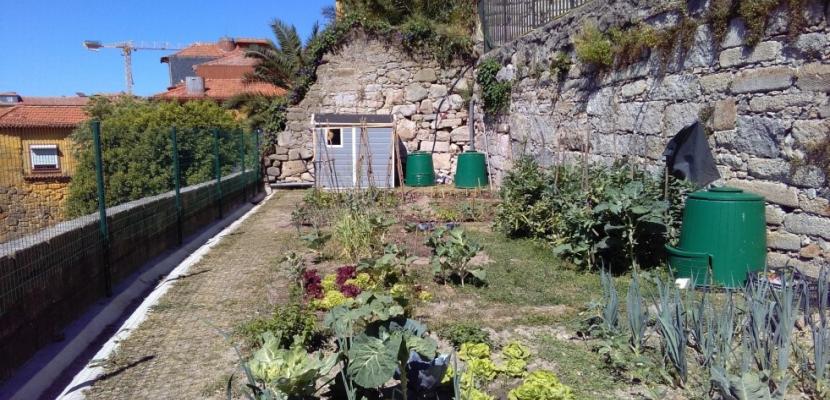Image

Home Composting Support Scheme
Published on 31 January 2019

Portugal
Norte
This is the good practice's implementation level. It can be national, regional or local.
About this good practice
The Home Composting scheme is an awareness project that promotes home/community composting and worm composting. This process transforms biowaste into a chemical-free, natural fertilizer that can be used in all types of gardens and for all kinds of plants.
Through the composting process, biowaste is transformed into compost organically and without the need for machinery. This project aims to promote a reduction in centralised collection and treatment of bio waste in Porto, thus reducing the environmental impact of the process and improving the quality of life of the population it serves. By promoting workshops on composting locally, residents are encouraged to start the process. There are three possible ways to be a part of this projects: home composting, if the residents have space and conditions to hold a composter in their houses; community composting in community gardens, if the residents don’t have the needed space in their houses and if there’s a community garden nearby; home worm composting, if the other possibilities are not suitable.
These projects started as a response to the organic waste problem and evolved to a strategy built on an ongoing home composting support scheme. In the matter of waste management, this strategy holds a privileged position as it represents a method of waste prevention at the source, reducing the significant economic and environmental costs associated with the collection, transport and treatment of such waste.
Through the composting process, biowaste is transformed into compost organically and without the need for machinery. This project aims to promote a reduction in centralised collection and treatment of bio waste in Porto, thus reducing the environmental impact of the process and improving the quality of life of the population it serves. By promoting workshops on composting locally, residents are encouraged to start the process. There are three possible ways to be a part of this projects: home composting, if the residents have space and conditions to hold a composter in their houses; community composting in community gardens, if the residents don’t have the needed space in their houses and if there’s a community garden nearby; home worm composting, if the other possibilities are not suitable.
These projects started as a response to the organic waste problem and evolved to a strategy built on an ongoing home composting support scheme. In the matter of waste management, this strategy holds a privileged position as it represents a method of waste prevention at the source, reducing the significant economic and environmental costs associated with the collection, transport and treatment of such waste.
Expert opinion
In Europe, an enormous amount of food is thrown away and ends up in the waste bin. A total of 88 million tons or 176kg per citizen are discarded every year.
Bio-waste is a valuable resource and can be recycled through composting. Encouraging home composting and community composting are very good policy measures that help reducing the amounts of food waste discarded in general waste. This good practice is a very good example to follow not only for heritage cities but for other municipalities as well. The combination with urban farming and gardening is an interesting approach to consider.
Bio-waste is a valuable resource and can be recycled through composting. Encouraging home composting and community composting are very good policy measures that help reducing the amounts of food waste discarded in general waste. This good practice is a very good example to follow not only for heritage cities but for other municipalities as well. The combination with urban farming and gardening is an interesting approach to consider.
Works at
Interreg Europe Policy Learning Platform
Resources needed
The implementation and development of these projects implies an intensive process of awareness campaigns and training workshops. The composters are given for free to all the residents that want to participate and each one gets in a training program to learn how to use it.
Evidence of success
Regarding environmental indicators, overall, the estimates point to the avoidance of 273 kg waste/year per worm composter and 423 kg waste/year per traditional composter.
Porto has 39 worm composters and 2,052 composters being used, preventing the incineration of more than 870 tons of biowaste/year.
One possible success factor is the fact that all the users are monitored, in order to answer to any problems that might occur and to keep them motivated to continue participating.
Porto has 39 worm composters and 2,052 composters being used, preventing the incineration of more than 870 tons of biowaste/year.
One possible success factor is the fact that all the users are monitored, in order to answer to any problems that might occur and to keep them motivated to continue participating.
Potential for learning or transfer
Regarding the implementation of this scheme in heritage areas, the space limitations can be an obstacle. However, joining the three different approaches, there’s some flexibility to adapt the solutions to different conditions. Moreover, if it’s possible to implement this scheme, it can bring several advantages. In Porto we were able to transform an unused space located in the historic city centre in a community garden where community composting is done by the local residents. With this transformation it was possible to rehabilitate a degraded space, create a green spot in the urban structure, give the local residents the possibility to grow their own crops and, at the same time, reduce the amount of food waste entering the collection system.
Further information
Website
Good practice owner
You can contact the good practice owner below for more detailed information.
Organisation
Lipor - Serviço Intermunicipalizado de Gestão de Resíduos do Grande Porto

Portugal
Norte
Contact
Dr.
